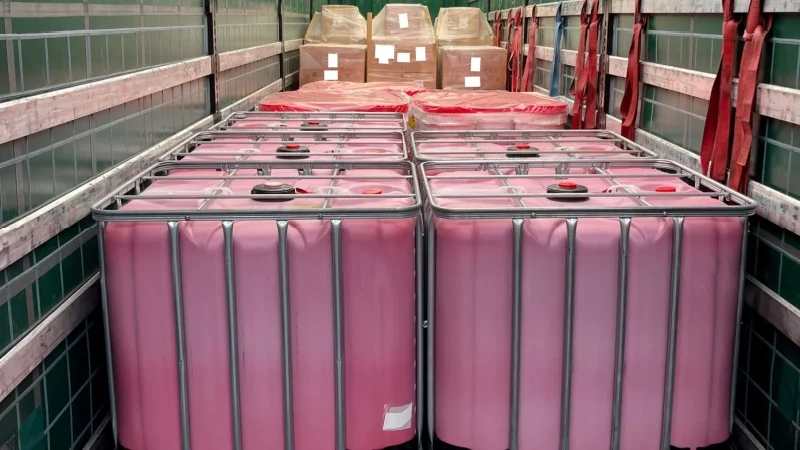Shipping goods across the globe involves a variety of methods and equipment. A special purpose container is designed to handle goods that do not fit into traditional shipping containers. These containers come in various shapes and sizes, tailored for specific cargo types. They help ensure that products arrive at their destination safely and efficiently. This blog will explore what special equipment containers are, their types, their benefits, and why they are essential in the cargo and courier industry.
Types of Special Equipment Containers
There are several types of specialized shipping boxes. Each serves a specific purpose, ensuring safe transport for various goods.
1. Flat Rack Containers
Maersk flat rack containers are among the most versatile. They have no sides or roof, allowing for easy loading and unloading of large items. This design makes them perfect for transporting heavy machinery, large furniture, and construction materials. Their open structure enables easy access from all angles.
2. Open Top Container
These containers have a removable top. They are ideal for transporting tall cargo that won’t fit inside standard containers. Loading occurs from above, making it easier for cranes to place items inside. Open top containers work well for heavy materials like steel beams or oversized machinery.
3. Refrigerated Containers
Refrigerated containers, often called reefers, are essential for shipping perishable goods. These containers maintain a controlled temperature, protecting items like food and pharmaceuticals. Companies rely on them for international transport, ensuring products remain fresh throughout the journey.
4. Tank Containers
Tank containers are used for transporting liquids. They can hold chemicals, food-grade liquids, or hazardous materials. This specialized container ensures safe and secure transport, minimizing the risk of spills or contamination.
5. High Cube Containers
These containers are taller than standard ones, providing extra space. They are beneficial for lightweight cargo that needs more volume. High cube containers are popular for shipping textiles, electronics, and other bulky items.
6. Breakbulk Cargo Containers
When shipping items that cannot fit into standard containers, breakbulk cargo solutions come in handy. This method involves transporting goods as individual pieces, which is often more complex but necessary for certain shipments. Special equipment boxes designed for breakbulk cargo ensure each item is secure and arrives safely.
How to Choose the Right Container?
Selecting the right special container requires understanding the cargo’s needs. Here are some key factors to consider:
- Size and Weight: Before shipping, measure the dimensions and weight of the cargo. Knowing these details ensures the chosen container will fit properly without risking damage.
- Type of Cargo: Understand what you are shipping. For fragile items, a refrigerated or specially padded container may be necessary. For oversized machinery, a flat rack or open top container would be appropriate.
- Loading: Proper loading is crucial. Use equipment such as forklifts or cranes to load heavy items safely. Ensure the cargo is evenly distributed to maintain balance.
- Securing: Use straps, chains, and other securing methods to prevent movement during transport. This step is vital for protecting cargo from damage.
- Destination and Regulations: Each destination may have different import/export regulations. Research these rules to ensure compliance and avoid delays. Some countries might require specific container types for certain goods.
- Transport Mode: Will the cargo travel by sea, air, or land? Different modes may require different containers. For instance, the international air transport service has strict guidelines for air cargo, affecting container choice.
- Unloading: Once the container arrives, it needs to be unloaded carefully. Proper techniques help prevent damage to both the cargo and the container.
Importance of Special Equipment Containers
Using special purpose containers offers several advantages:
- Safety: These containers are designed to protect cargo from damage. Specialized features help secure goods and reduce the risk of breakage during transit.
- Efficiency: With the right container, loading and unloading becomes faster. This saves time and helps keep supply chains running smoothly.
- Flexibility: Container special equipment can accommodate a wide range of products. This versatility makes them essential for diverse shipping needs.
- Cost-Effectiveness: While special containers may have a higher upfront cost, they help prevent damage and loss. This can save money in the long run.
Challenges in Special Container Shipping
Special equipment container transport faces many challenges, few of them are:
- High Costs: The initial investment in special containers can be significant. Companies must weigh this against the potential benefits.
- Availability: Not all shipping companies have a wide range of special containers available. This can limit options for businesses needing specific containers.
- Complex Logistics: Coordinating the transport of oversized or specialized cargo can be complicated. It requires careful planning and communication between all parties involved.
Strategies for Using Special Equipment Containers
To maximize the benefits of specialized container shipping, consider these best practices:
- Plan Well: Assess your shipping needs well in advance. This allows for proper container selection and scheduling.
- Choose the Right Carrier: Work with experienced shipping companies that specialize in handling special equipment. This ensures that your cargo is in capable hands.
- Inspect Containers: Before loading, inspect containers for damage or defects. This helps ensure that the cargo will be safe during transport.
- Proper Training: Ensure that staff are trained in loading, securing, and unloading special containers. Proper training minimizes the risk of accidents and damage.
- Monitor Cargo: Use tracking systems to monitor the status of your shipment. This provides real-time updates and enhances visibility throughout the shipping process.
Special equipment containers play a crucial role in the cargo and courier industry, ensuring the safe and efficient transport of oversized and delicate items. By adopting the right strategies for container shipping, Travelite has boosted its supply chain efficiency and elevated customer satisfaction. Companies like TraveLite prioritize staying updated on new technologies to foster growth and innovation.










